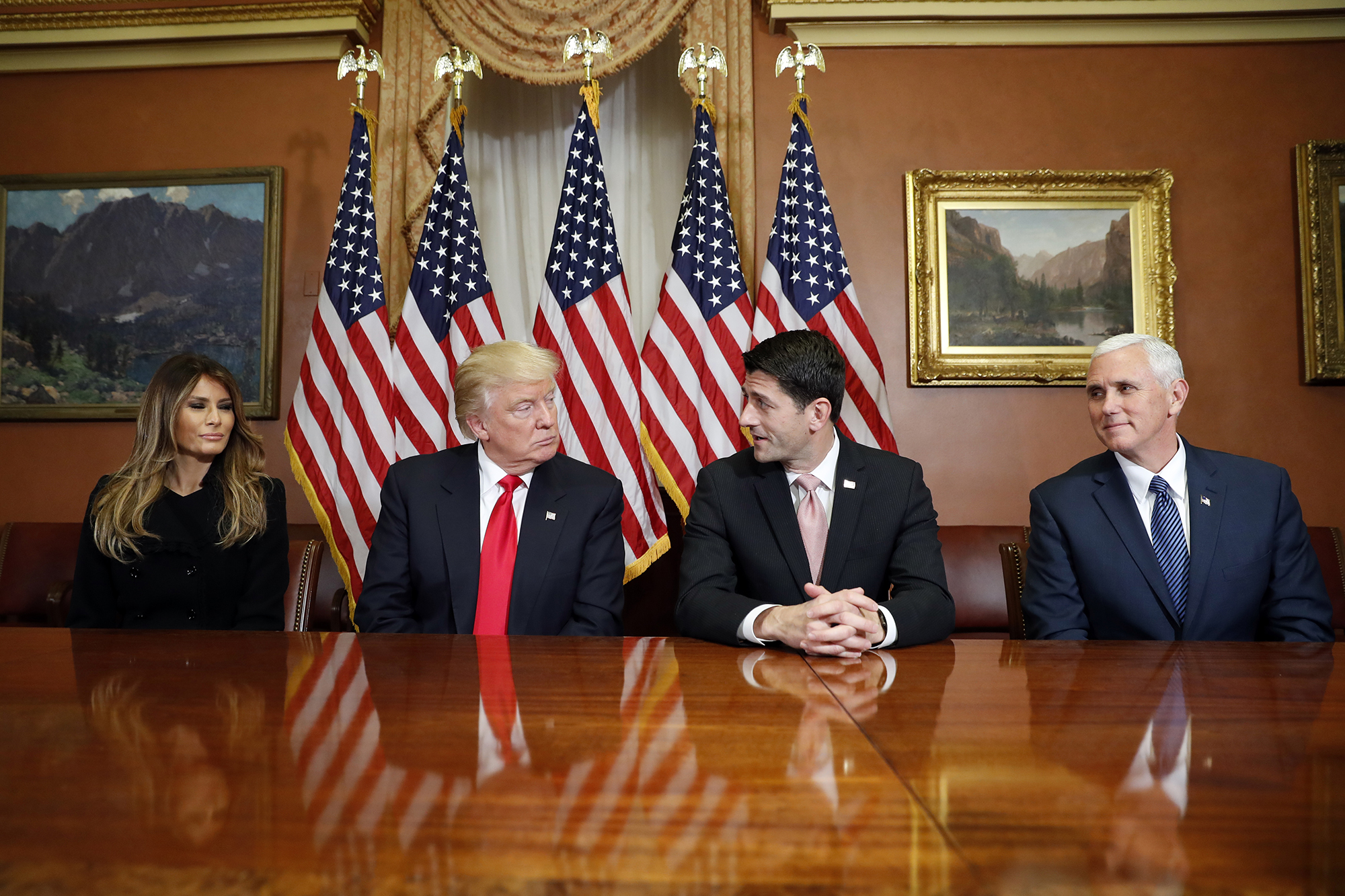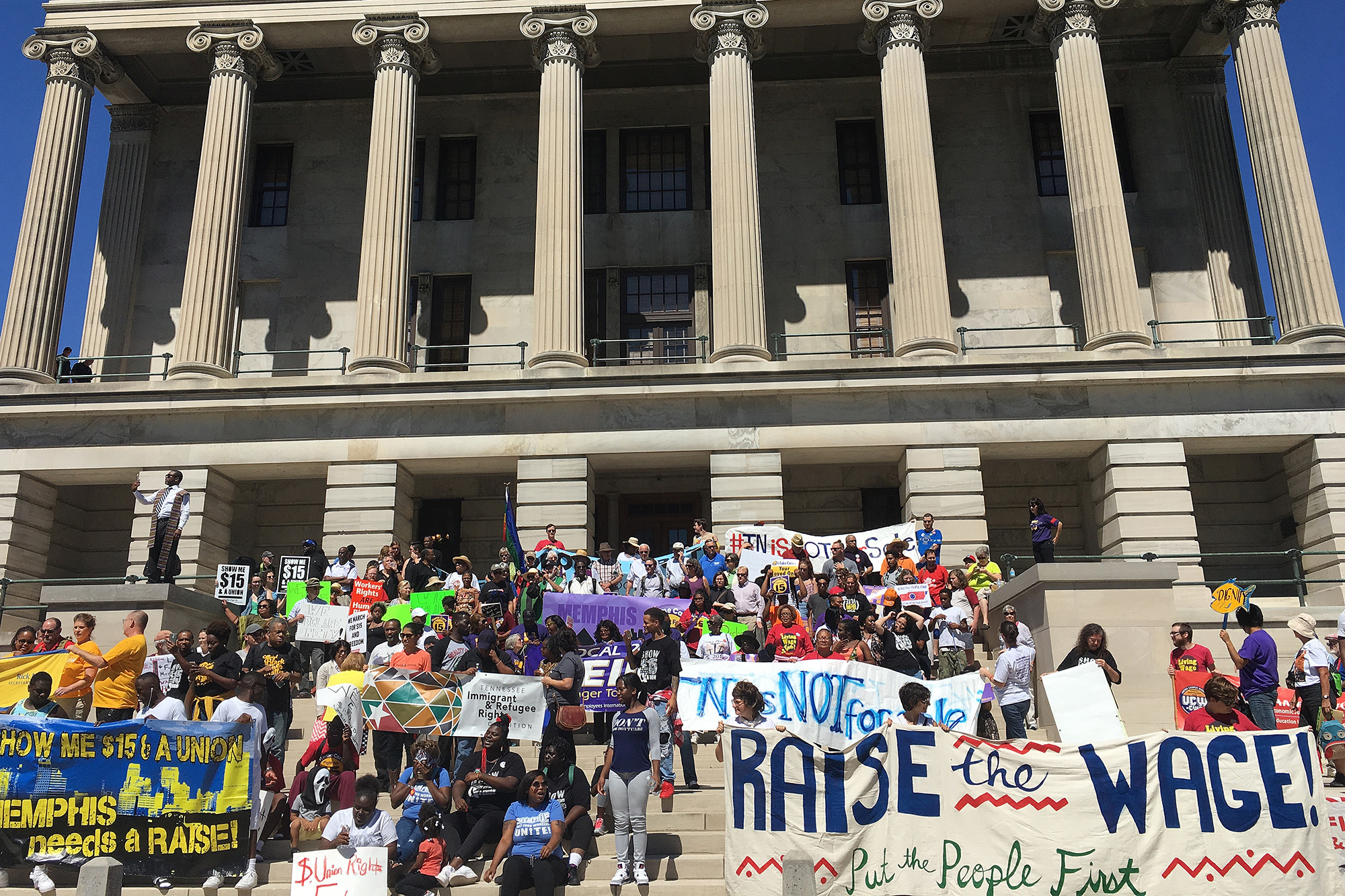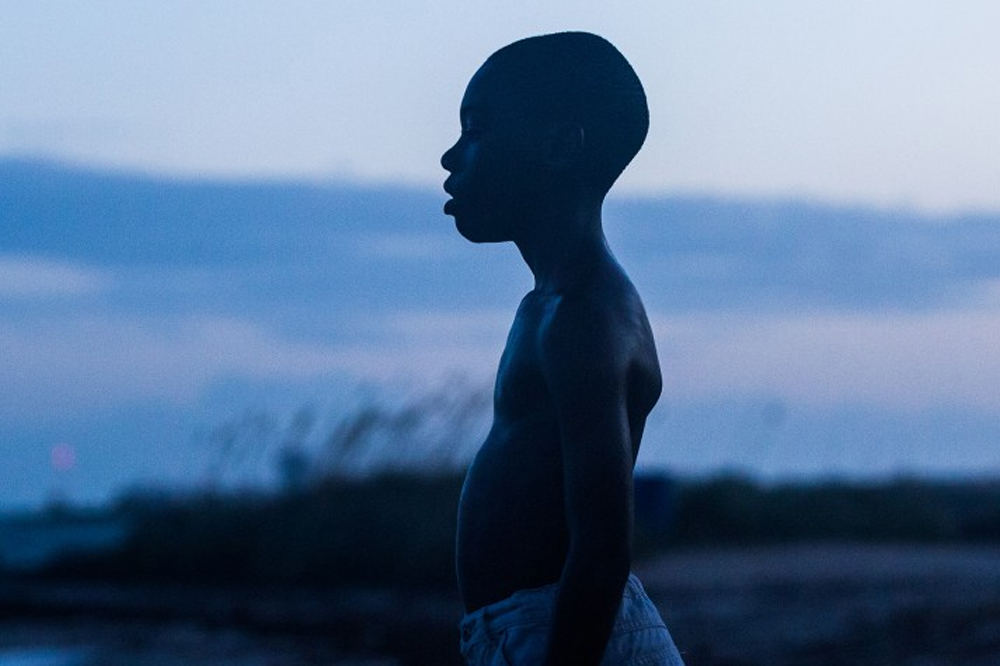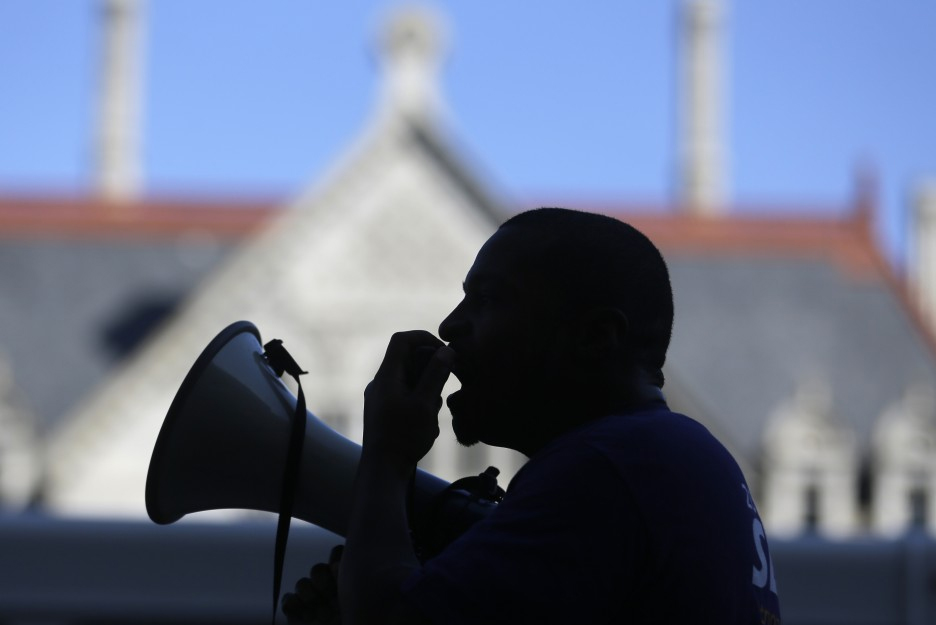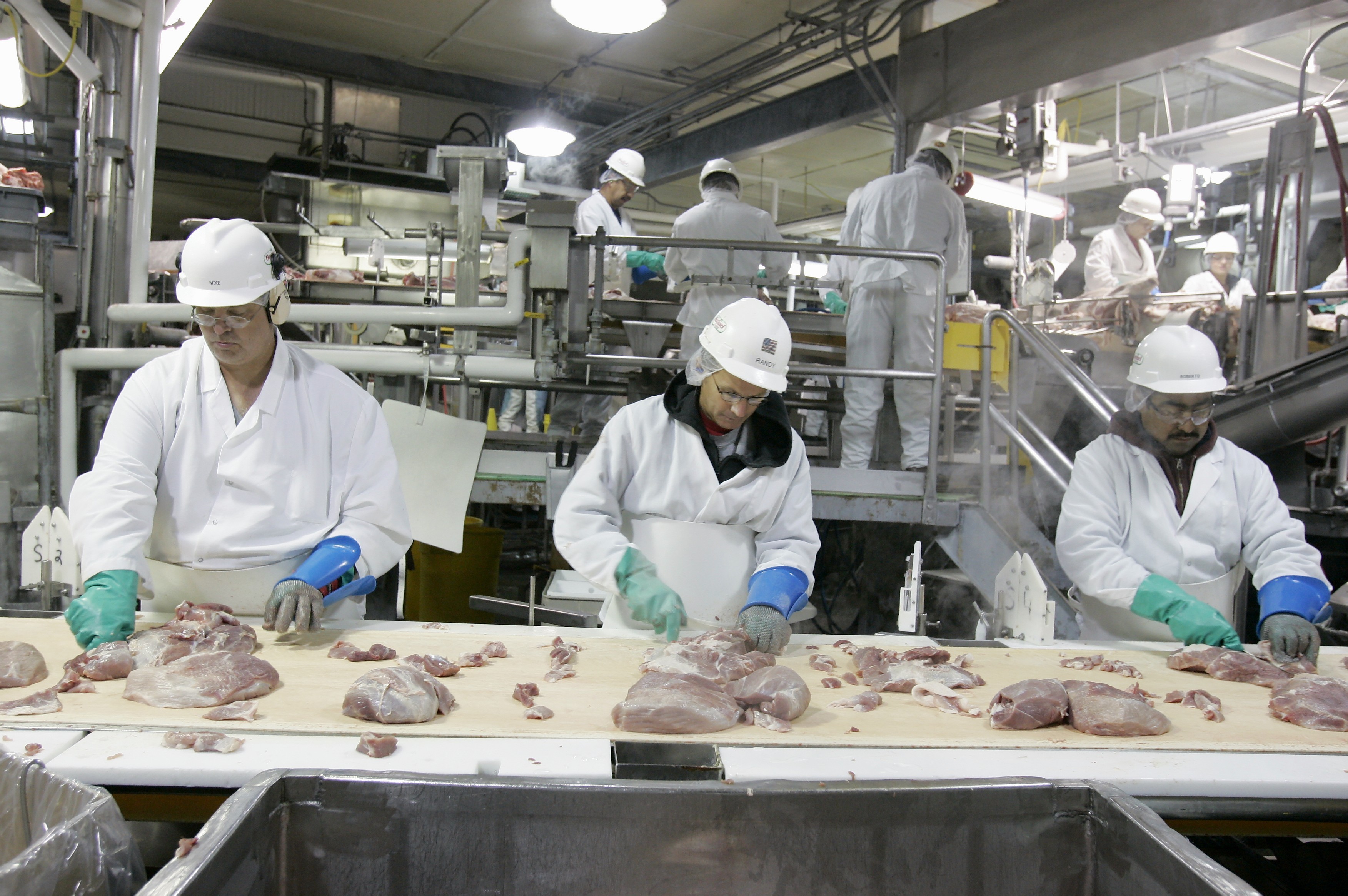I sat down with Norman Lear, the celebrated television writer and producer, in the wake of the 2016 election. We talked about the different turns his career has taken—from his time writing for classic sitcoms, to his founding role at People for the American Way, to his work on America Divided, the new documentary series on inequality in America—and about where we go from here, in Trump’s America.
Get TalkPoverty In Your Inbox
Rebecca Vallas: You’re probably best known for your career as a TV writer and producer from popular shows like All in the Family and The Jeffersons to Sanford and Sons. But you later branched out to advocacy work, founding People for the American Way in 1981. What drove you to enter the advocacy world in that kind of a formal way?
Norman Lear: Well in 1980, there was a proliferation of TV evangelicals, the Jerry Falwells and Pat Robertsons and Jimmy Swaggarts and so forth. They were mixing politics and religion, and I’ve been scared of the mix of politics and religion since I was nine years old. That’s when I took civics in school, and I was so in love with the founding fathers. I loved those guarantees of freedom and equal justice. I loved what we read about who we were and the promises we made.
RV: I’m struck by the People for the American Way’s organizational founding mission statement. You describe the organization’s goal as in part, “to promote a sense of community and tolerance and compassion for others.” What lessons might we draw from that, as we look back on one of the ugliest and most polarizing campaigns in recent memory?
NL: Well, in a sense, isn’t that mission statement representing organizations—left and right, as a matter of fact—that all cling to the wish of equality for all? As a matter of fact, I often think the right has taken those ideas and those words. If one asked oneself “who does the flag belong to, left or right,” I think the answer would have to be right. Who does God belong to? Right, if you had to make a choice.
I don’t believe that the right has been behaving in an American fashion or a Godly fashion, certainly not any more than the left. But I fault us on the left, for letting God go, for letting the flag go, for letting patriotism go. We’re not as at good at bumper sticker stuff as the right is. Our hearts and souls are there, but I wish our asses were too.
RV: During this election cycle I think many have actually pointed to Archie Bunker, the character that you wrote for All in the Family. He was a staunch conservative, a blue-collar worker, who wasn’t exactly shy about his views when it came to minorities and women and LGBT individuals and on and on. The show was set some 40 years ago, but people have been seeing Archie Bunker all over the 2016 presidential election.
NL: The Archie Bunker you just described, he didn’t know what the hell he was talking about. He just came out of fear. A fear of progress, a fear of forward movement—the idea of a black family moving in next door scared the hell out of him. That’s not what’s happening right now. We don’t have an Archie Bunker, ‘cause that would suggest heart and soul.
I don’t think the country knows Donald Trump really well yet, despite the celebrity. Or maybe better said, we know him the way we know all our celebrities, which is to say we know about them from the tube, from lights, from the glare, from the glisten. But do we really know them? Not the way the media plays it.
RV: Well even if it isn’t fair to make a comparison between Donald Trump, our next president, and Archie Bunker, do you see glimmers among his supporters, or some of them at least?
NL: Well, yes, I think there’s a lot of the kind of sounds Archie Bunker made coming from the supporters. They don’t know the issues and they have reason to be afraid. This is where I thought of Archie, and of Donald Trump from the very beginning, as the middle finger of the American right hand. They were feeling desperate for leadership.
You know, this is a republic that depends on an informed citizenry. And we don’t have national conversations that really inform people. We’ve got media, and in the case of 17 people running for the Republican candidacy, just people bumper stickering each other. By “bumper stickering” I mean using these short phrases that wrap the other guy. We haven’t had an honest discussion of what’s at stake here.
RV: For people who do want to have that honest discussion of what’s at stake, and for people who care about addressing poverty and tackling inequality, there are a whole range of related issues that you explore in the America Divided series. Where do we go from here and what can we take away from this election?
NL: More of America Divided, more of what you’re doing exactly at this moment, more conversation, and more honesty.
You’re talking to a man who is well known for his views and everything else, but I was thinking, when I was with Dolores Huerta, who comes out of the farm worker’s movement, very close to Chavez, and she’s been active, gloriously active to this moment. And she’s been arrested like twenty times, for people’s protest.
So you’re talking to a man now, and this man is listening to himself, who’s never been arrested. So I want to dust myself off. For all my spouting, for everything I’ve done, why have I never been arrested? I’ve cared enough, I’ve wished to protest enough, so maybe in my 94th year I’ll get to do that too.
RV: Well, I’d be happy to join you if you let me know where to go and when.
A lot of people have been describing this particular election and the election result as really categorically different from any other presidential election we’ve had. You’ve seen a lot of elections in your lifetime. Is it fair to categorize this election, and the outcome and the next president, as truly unique?
NL: Well it is truly unique, but it isn’t alone. When Al Gore lost, it was the Supreme Court who decided that he would not be the next president. That was truly unique. When Nixon came into the presidency and when he left the presidency, my God wasn’t that truly unique! So we’ve been here before. And we’ll get through it, we’ll get past unique.
RV: A lot of the discussion throughout the entire election season and also going back into the primary, has been about deep economic anger. Anger about inequality, anger about kitchen table issues, not being able to make ends meet, and the rising income instability across this country. What is your read about what progressives should take away from the final outcome here?
NL: Progressives should take away that we have been an utter failure. And that we talk our game, but we’re not sufficiently active or dynamic or truly honest. We have a lot to learn.
If we see Trump making mistakes like who he might appoint to the Supreme Court, we can stand up as one. I’ll get arrested protesting someplace. And everybody does his or her part in the same fashion. We’ve got to be heard from. We’ve got to remember eternal vigilance, eternal and daily vigilance. This is the price of liberty.
RV: You purchased, some number of years ago, one of the first published copies of the Declaration of Independence, for many millions of dollars. And you did that because you said that you “wanted to help re-acquaint America with its birth certificate.” Why did you do that, and do you think there is anything to take away from that at this particular moment in our nation’s history?
NL: Because it was like a moving civics class. I’d like to join a fight, if there is anyone listening to me, to get the civics back in the classroom. To teach American kids what America is all about. Who we are as Americans. Because we lost all that.
We were in love with our country when we understood what it was to be all about. What its founders declared it wished it be. We’re not taught that in school anymore. I wish to God we could get a movement that gets civics back in the classroom, so we learn who we’re supposed to be and we start taking care of ourselves and each other that way.
This interview was edited for length and clarity. Listen to the most recent episode of TalkPoverty Radio for the full interview.




